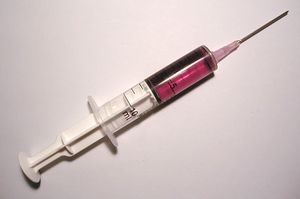Ethical hacking
Old-school hacking[edit | edit source]

In the murky world of computer bitch networking, there are those who would seek to violate your system and feast upon the sweet, sweet data therein. These people are hackers and their weekly income is typically less than $5 - barely enough to house their family, feed their children and maintain the l337 computer system required to play their trade. To say nothing of the lawyers fees to avoid deportation to the USA for crimes against the CIA's poorly-protected computer systems.
In fact, it's fair to say that these poor, exploited hackers are the direct descendants of the slaves who toiled on the plantations, their hard work taken for granted as they serve under the cruel task-masters who profit from the stolen passwords. To those who have grown fat on the labours of the hacker, I say this: no more!
The present day[edit | edit source]
However, in these enlightened times, consumers have become willing to pay a fair price to have their credit card details stolen by these so-called ethical hackers. By forming a cooperative, hackers can better approach big industry directly to sell their produce, offering guarantees of quality and badly-spelled graffiti across their websites.
In turn, this allows big industry to charge a modest premium to the end customer with the reassurance that a future generation of script kiddies will grow up healthy, strong and equally unable to spell "pwn3d" or "h4x0r".
The real cost[edit | edit source]
Ethical hacking, often referred to as "white hat" due to the Man from Del Monte, has become increasingly widely accepted by the middle classes, who like to boast at dinner parties about how their identity was stolen by someone who really cared about what they were doing. This is, of course, before the conversation turns to just how much the value of their house has increased due to the highly-rated local school. Smug bastards.
In any case, there is a significant benefit to be gained from ethical hacking. While there is, indeed, a slightly higher ransom price to be paid when your files are encrypted, research has shown that the consumer feels better about using the produce of an ethical hacker. Indeed, everyone who has tried it says that the porn pop-ups that cover your desktop are considerably higher quality, with almost no drug-ridden skanks.
Other forms[edit | edit source]
The most common form of ethical hacking is the penetration test. This is a form of hacking whereby the average computer user is persuaded to bend over, facing away from their monitor, to be brutally violated by their computer's CD-ROM drawer. Go on, bitch - you're going to take it all, at 52-speed.
Of course, this isn't even faintly ethical. However, it is very funny and hackers, ethical or otherwise, need to take a break and unwind from the hard work of demanding money in return for not sending your significant other a list of those 'special' websites you like to visit when they're visiting their mother. I mean, really - look at what that man is doing to that donkey! You're one sick puppy.
A significant form of ethical hacking is identity theft, which involves using complicated and time-consuming procedures to remove the skin from an unassuming member of the public (usually, but not always, after they have been knocked out with Rohypnol). The skin is then 'worn' by the hacker while buying fairtrade products with stolen money. The unfortunate 'victim' is left to wake up in a bath full of ice, looking like Robbie Williams in that music video for that crap song.


